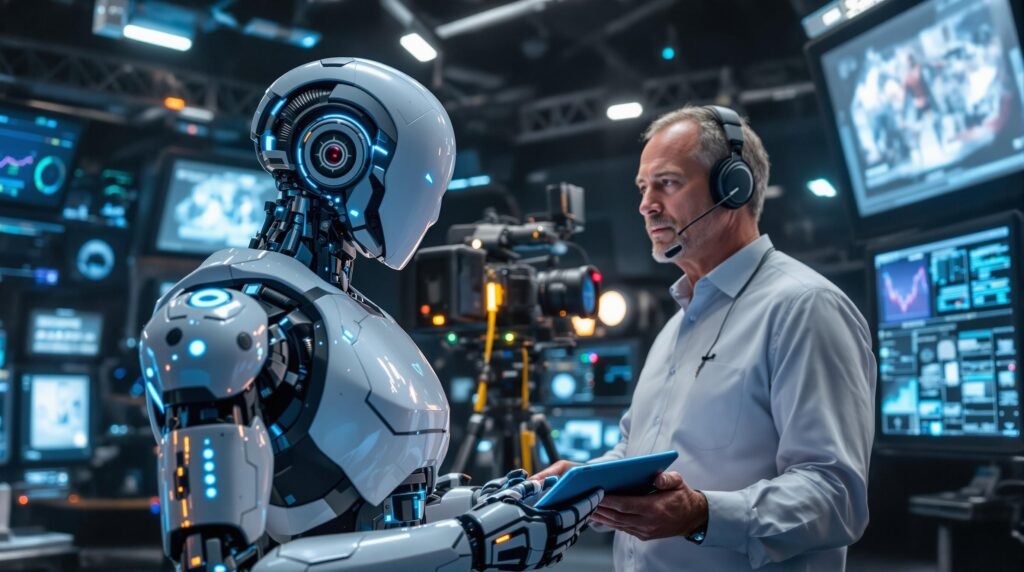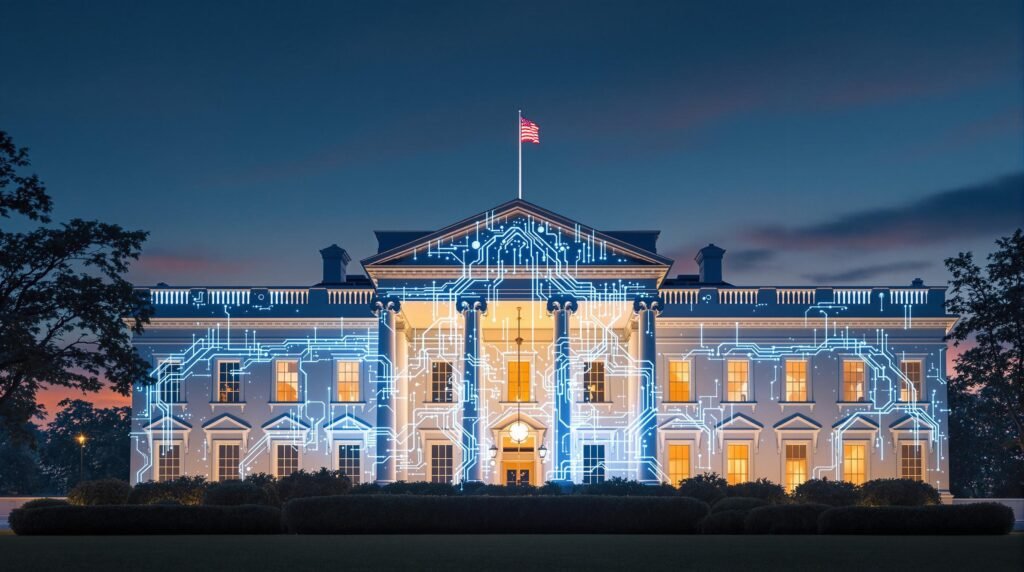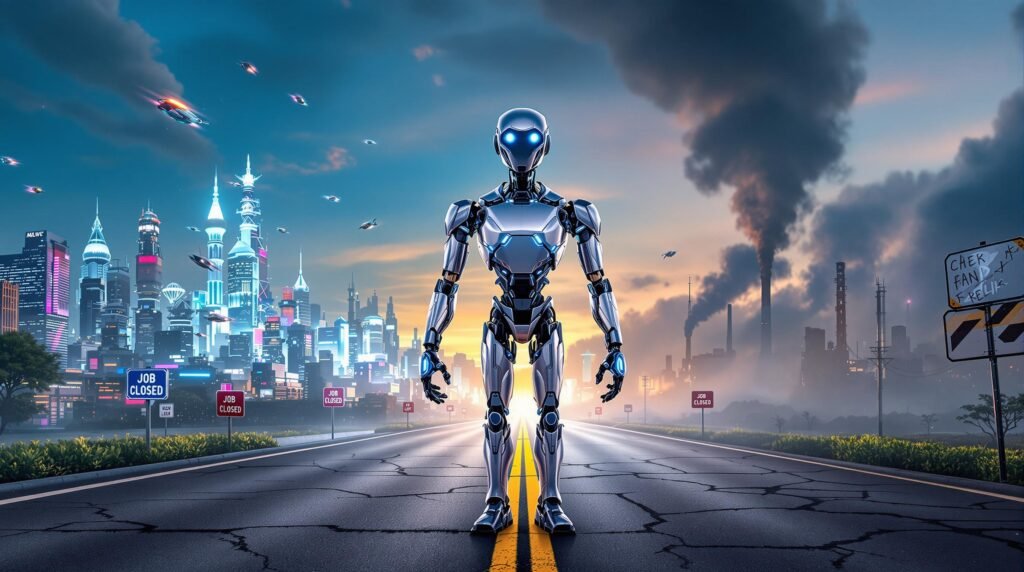Though the latest story twist in Hollywood concerns artificial intelligence instead of superheroes or star-crossed lovers, drama is nothing new there. Algorithms with AI-generated scripts and digital actors are permeating the silver screen. But is artificial intelligence coming to empower filmmakers, or will human inventiveness in the script be replaced?
Rolling the tape allows us to review the key questions: Is artificial intelligence a creative catalyst or an existential threat to Hollywood as it exists now?
Act I: Is the AI Revolution either good or bad?
The Positive View: Artificial Intelligence as the Most Powerful Creative Tool
Hollywood tech-savvy dreamers see artificial intelligence as the hero rather than the evil. This is the cause. AI lowers production costs by 30–40%, therefore making filmmaking more accessible and allowing smaller studios to challenge the largest companies in the business. Effectiveness, Baby: AI frees more time for artistic creation by speeding through labor-intensive tasks including storyboarding and visual effects polishing. releasing artistic potential On an independent film budget, envision characters created with lifelike accuracy or visual effects likely to make James Cameron jealous.
AI is Batman’s Alfred, the unsung hero who enhances everything in the backdrop.
The critics’ cut: artificial intelligence as the creative enemy
Not everyone will be happy if artificial intelligence disturbs Hollywood’s celebration. Traditionalists hold that human ingenuity is irreplaceable. No machine can exactly duplicate the subtlety of a human storyteller or the unique vision of a director. Danger of Homogenization: Every movie is the cinematic equivalent of fast food since artificial intelligence can generate technically great but emotionally dull material. A Rising Dystopia: Should artificial intelligence be able to create hit scripts and CGI actors, what will happen to the screenwriters, directors, and crews—the lifeblood of Hollywood?
They view artificial intelligence as more Ultron than Alfred, a powerful tool capable of disturbing the fragile balance of Hollywood’s creative scene.
Act II: Technical Support Team
Hollywood’s Potential AI Application
AI is not just a buzzword; it is already altering the sector. In this manner: Steroid Effects on the Eye: Advanced algorithms allow amazing CGI to be created in a fraction of the time and cost. AI technologies simplify sound design, color grading, and editing, therefore lowering production times by weeks. Digital actors’ and characters’ AI-generated faces and performances have the power to entirely change the story.
If AI were a Hollywood production assistant, Employee of the Year would go to it as it is so gifted, hardworking, and creative.
The constraints of algorithmic creativity
AI shouldn’t yet get the Oscar, though. Critics point up certain clear flaws: Emotional blind spots: AI cannot understand sadness, humanity, or humor. Though it cannot feel, it can mimic. Artificial intelligence may generate too many identical stories since it specializes in patterns but lacks imagination. Though incredible, modern artificial intelligence technologies are far from perfect, and integrating them into artistic processes is no simple chore.
Though technology cannot match a director’s vision or a human actor’s pure passion, artificial intelligence may be the best assistant ever created.
Act III: Jobs, Ethics, and The Hollywood Shuffle
Losers and Champions of the AI Age
The rise of artificial intelligence will influence Hollywood’s employment market more than a big flop would. The following people stand to gain—and suffer: Winners: Small businesses leveraging artificial intelligence to create work on par with those of the big Hollywood production houses. new roles, including digital ethicists, virtual production experts, and AI supervisors. Lossers: In editing, animation, and scriptwriting, traditional roles could be drastically declining. Larger companies may monopolize the market and drive out smaller rivals by taking control of innovative artificial intelligence technologies.
Comparatively to a Hollywood earthquake, artificial intelligence will produce new heights and level certain playing fields.
Morals: The Story Gets Complicated
AI in Hollywood presents a complicated ethical conundrum rather than merely a technical one. Following is what is at risk: The work owner is who? When artificial intelligence writes a script or creates a character, who gets credit—and the royalties? The location is the studio. The code was written by someone. AI itself? Digital likenesses and deepfakes raise challenging questions about the use of performers’ images even long after they are no longer here. Artificial intelligence will produce a generic, global Hollywood devoid of diversity in favor of mass-market appeal, therefore homogenizing society.
Hollywood is still developing the script for artificial intelligence; it is up to the business to decide whether it will be a feel-good or a cautionary tale.
Act IV: Will the AI Futures of Hollywood be Successful or Failable?
The Scene in Blockbuster
Human and artificial intelligence working together generates hitherto unheard-of degrees of creative output.
More diverse voices can enter the market as costs fall.
AI tools start to rank alongside cameras and green screens as absolutely vital.
Flop at the Box Office
AI rules and replaces human ingenuity with merciless, algorithm-driven stories.
Hollywood homogenizes and generates formulaically predictable content that prioritizes efficiency over originality.
Hollywood turns into a monopoly of artificial intelligence as whole creative professions are made useless.
The truth is… It will most likely lie in the middle, providing an awkward but necessary balance between technology and creativity.
Ultimately: AI, camera, lights?
Artificial intelligence in Hollywood is a tool rather than a panacea or the end of the earth. Its impact depends on how it is utilized, just as with any other instrument. The perfect world would be one in which artificial intelligence enhances human creativity instead of replacing it. The worst scenario is a movie company lost in its search for algorithms, neglecting people.
Hollywood of the past has seen advances in sound, color, and digital effects. AI is only the upcoming major advancement in the field. The course of the story will define whether it is a villain, a hero, or something else totally.
Finally asked:
Do you believe that artificial intelligence either represents the biggest creative inspiration or existential threat to Hollywood? Tell us about it; your point of view might be included in the follow-up!


